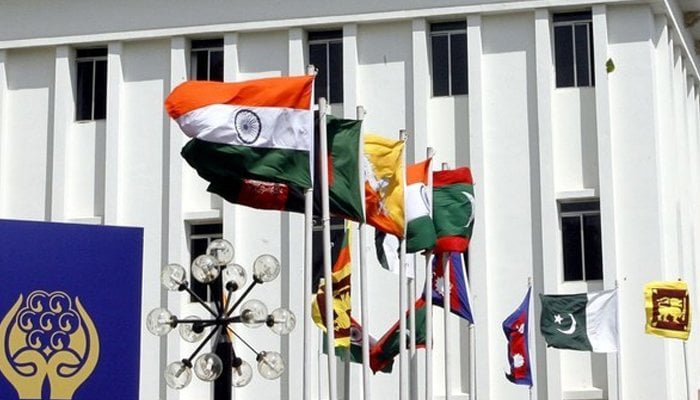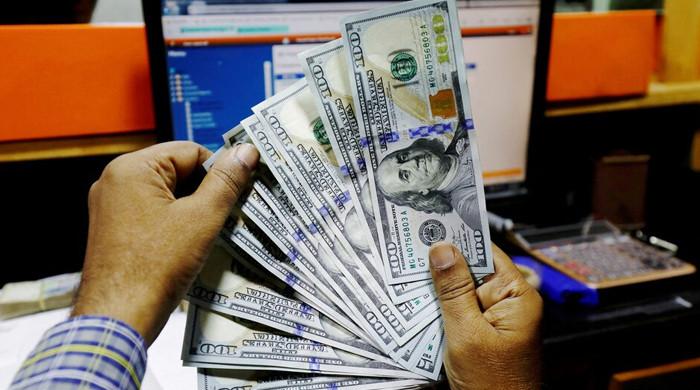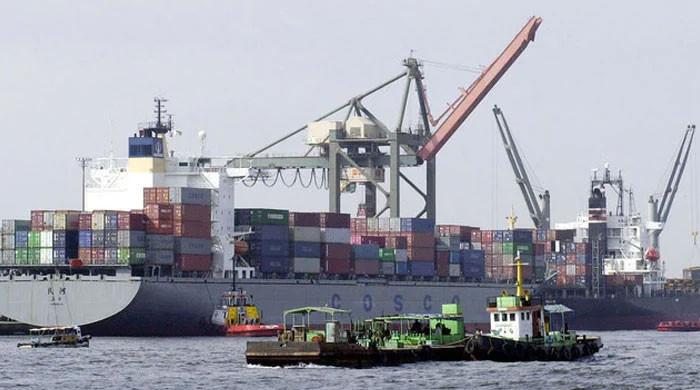Regional trade through Saarc
India and Pakistan should opt for geo-economic cooperation, setting everything aside
January 08, 2022

Pakistan’s new narrative of geo-economics is facing the most crucial question: how to tackle geopolitics in the best possible way while keeping in view its geographical location.
The country’s neighbour in the east has a bad record of human rights violations, denying the right to self-determination to Kashmiris and not conducting the UN-mandated plebiscite in Indian-occupied Kashmir.
The new government in Afghanistan is yet to be recognised by the international community. Iran is under multiple sanctions, facing a plethora of issues in the smooth functioning of its trade and businesses.
What could possibly be a smart move to get the maximum benefits of its geo-economics while facing the ground realities of geopolitics in the region?
In my articles, I have advocated that regional trade integration should be part of geo-economics to achieve economic security. There is no denying that economic security has got prime importance in the national security paradigm.
All developed countries — from the US to European countries and now China — have strong economies that safeguard their national security interests. It is a proven fact that the economic security paradigm has become almost synonymous with national security in the world.
Geo-economics has a vital role to play to strengthen regional trade integration.
Being a member country of the South Asian Association for Regional Cooperation (Saarc) and the Economic Cooperation Organization (ECO), Pakistan needs to effectively promote its trade on the pattern of the gravity model by utilising these regional arrangements.
But a million-dollar question is: how to revive regional trade through Saarc in the absence of visionary leadership in India, although the ECO forum can be effectively utilised for trade and economic cooperation by Pakistan.
Saarc countries have a big consumer market of about two billion people with comparatively cheap labour and the potential for industrial growth. The need of the hour is to promote trade in the region to change the poor socio-economic condition of the people through industrial growth, trade infrastructure and trade promotion, attracting more investment in the region.
At present, the intra-regional trade volume is dismal and disappointing owing to various reasons which need to be addressed by the major trade partners by removing all sorts of hurdles and barriers.
Intra-regional trade is not picking up more than 5% of the total trade volume of the region, and the major reason for such a low figure is attributed to regional disputes, which need to be resolved at the earliest.
The trade promotion in the region is subservient to and dependent upon better bilateral relations of Saarc countries, especially India and Pakistan. The regional trade promotion is necessary for South Asia, which can be promoted through the South Asia Free Trade Agreement (SAFTA) under the auspices of Saarc to uplift their economies marred by the COVID-19 pandemic during the last two years. Cost-cutting measures can only be ensured through regional trade promotion.
According to one estimate, goods and services from our neighbouring countries can be available at half the price at which we import from the international market.
Foreign direct investment (FDI) can only be attracted by improving bilateral relations. This is the only way forward to make this great region greater by adopting visionary policies and abandoning hegemonic designs. Confidence-building measures are immediately needed.
The ten-member ECO forum is another opportunity for Pakistan to promote trade in West and Central Asia by building concrete solid relations through this regional arrangement.
ECO member states are rich in energy with a lot of potential growth and investment opportunities. Luckily, there are no political issues — unlike in Saarc — and there are no barriers or stumbling blocks involved in trade promotion except the fact that Iran is under international sanctions.
A good thing about the ECO is that it consists of Muslim-majority countries with a long history of trade and merchandise, as it used to be an integrated agricultural region facilitating the trade of goods and services.
A lot of economic cooperation is underway by and between Pakistan and ECO countries paving the way to economic growth and investment, especially in the energy sector.
The Iran-Pakistan (IP) gas pipeline and the Turkmenistan-Afghanistan-Pakistan-India (TAPI) gas pipeline are two projects for close regional and geo-economic cooperation, which will possibly be meeting our energy requirements.
It would have been better if India had not withdrawn from the IP gas pipeline project; it was initially designed and named the Iran-Pakistan-India (IPI) gas pipeline. The IP gas pipeline is the most feasible project, but it has been temporarily stalled due to sanctions on Iran, hurting regional economic cooperation.
Hopefully, the issue of international and American sanctions on Iran will be resolved soon and the IP gas pipeline project will be resumed.
The Belt and Road Initiative (BRI) of China is another game-changer project, integrating different regions of the world. It is basically meant for close meaningful economic cooperation through viable trade routes by developing road infrastructure, providing the easy mobility of goods and services as part of cost-cutting measures.
Pakistan rightly appreciated this initiative and has become a part of the Belt and Road project in the form of the China-Pakistan Economic Corridor (CPEC), providing an opportunity for connectivity to South Asia, West Asia, the Middle East and Central Asia.
It would be a harbinger of progress and prosperity for the region and the people of Pakistan. The development of special economic zones (SEZs) as part of CPEC would bring more investment, which in turn would provide great economic opportunities to the people of Pakistan.
The connected and other regions of the world would also be in a position to utilise and get economic benefits from this economic corridor and trade route.
Pakistan is at a critical juncture of time and a crossroads of history. It needs visionary policies and practical steps to strengthen its position vis-a-vis the region through geo-economic regional cooperation, trade promotion and economic integration.
Peace and stability in the region can ensure regional cooperation, ensuring sustainable economic development which can help support economic growth and investment in the country. Pakistan needs to focus more on this approach to earn respect, partnership and a high place in the comity of nations.
The geo-economic narrative needs to be promoted at a fast pace to get the best results for our economic policy, giving prime importance to investment and development in the country.
It is a well-appreciated paradigm shift of the government to move to a geo-economic strategy. There is a need to transform the existing geopolitical strategic depth into the geo-economic strategic depth.
Pakistan’s geographical confluence at the two biggest economies of the world makes it a big opportunity for future cooperation and economic development.
China is already with us as an iron brother. It is a big challenge to bridge the gap between dreams and reality as far as India is concerned.
The two countries should opt for geo-economic cooperation, setting everything aside. It needs a thorough in-depth review of future policies by all stakeholders and policymakers at all levels.
The writer is an economist.
Originally published in The News











